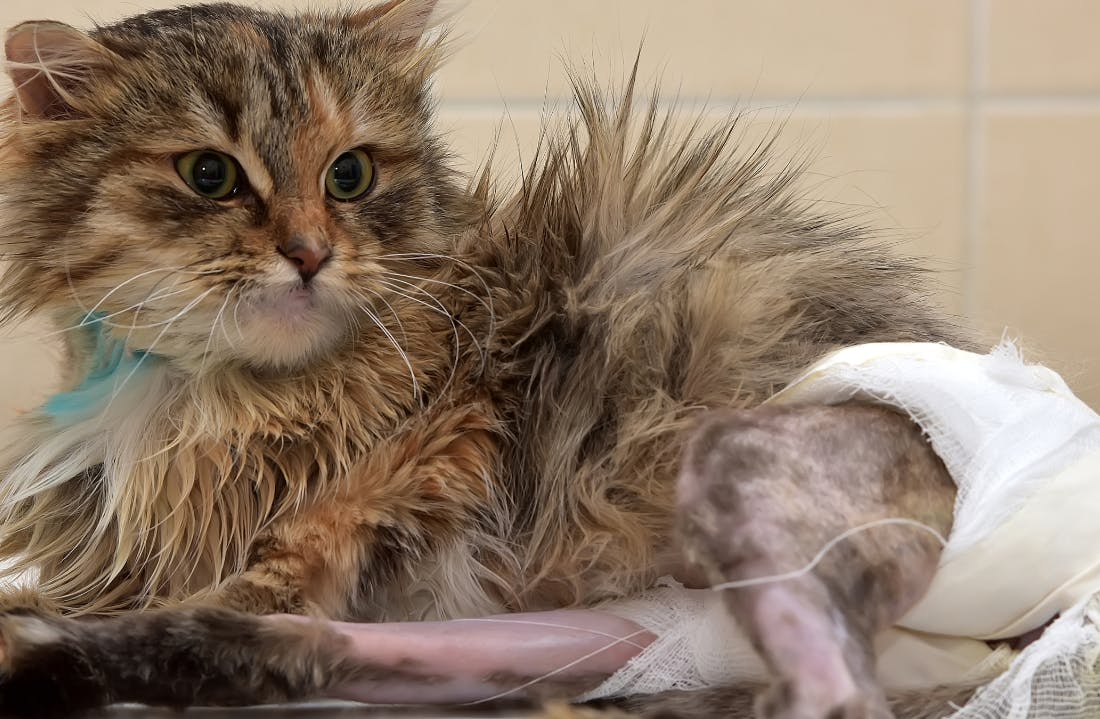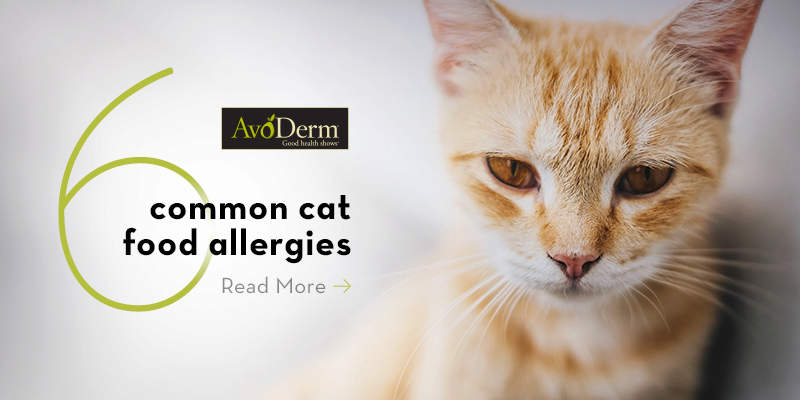Of course you can also just feed your cat the new food. What are the signs and symptoms of a cat allergy.

Food Allergy In The Cat A Diagnosis By Elimination Semantic Scholar
If your cat eats the pork increase the amount by 1 teaspoon per day and decrease their regular food until they are eating only pork.

How to tell if cat has food allergy. Your veterinarian can help you find out which foods are irritating your cat and create an. Food allergies usually develop by 4-5 years of age. They might not have an episode after every meal but vomiting or having loose stools a few times every week is cause for concern.
Diarrhea or vomiting Skin that is red and irritated. If the itchiness and other symptoms subside you can reasonably conclude that your cat has a food allergy. Some cats develop allergies to certain ingredients in their food.
If youd like to identify the cause of the allergy you can slowly incorporate a single new food every few weeks into your cats diet. Sneezing coughing and wheezing especially if. Now if your cat vomits and if your cat has diarrhea irritated skin and poor coat.
Food allergies account for about 10 of skin allergies in pets. Some cats develop both skin and digestive symptoms. The most common food allergens for cats are chicken beef dairy egg and fish.
While your cat is having food allergy it is more likely to have some gut sounds. Symptoms include skin and tummy problems and will develop every time your cat eats something they are allergic to. Besides your cat will also experience passing of gas.
If your cat appears to be scratching more than usual this may be a symptom of a food allergy. Cats with food allergies may also have frequent bowel movements or strain when they are defecating. Dietary discomfort or skin irritation are the most frequent signs of a food allergy or intolerance.
A food that causes allergy symptoms to reappear should be immediately eliminated from your felines diet forever. Many cats develop itchy skin or recurrent ear infections while others develop vomiting and diarrhea. Cats with food allergies may also suffer from frequent bouts of vomiting diarrhea and other gastrointestinal symptoms.
If your pets symptoms clear up that may mean it has a food allergy. Cats with food allergies typically develop skin or gastrointestinal symptoms sometimes both. This can cause skin itchiness vomiting or diarrhea.
Inflammation infection and some medications can also damage the digestive system of your cat and it can lead to food intolerance. If you see your cat scratches more often than usual then this might become one of the symptoms of a food allergy. These cats may develop itching around the rectum which leads to scooting.
Some cats may have allergies to certain foods. The allergen in these cases is usually to a protein in the food such as chicken or beef but can also be to a carbohydrate preservative or food dye. You should keep that on your mind.
Believe it or not grains such as corn are not the most common cause of food allergies in cats. Some cats also show their discomfort by excessively licking around their rectum or scooting. If the itchy skin or other symptoms come back your pet.
A cat with allergies can often scratch or rub themselves so much that they develop bald. Symptoms Allergic kitties are often very itchy and have skin problems associated with allergic dermatitis. Feed only plain pork exclusively for 4.
Food allergies develop when the immune system mistakenly sees a food type as dangerous and overreacts to it. Skin problems - itching and redness bald areas or actual abrasions of the skin usually caused by the cat scratching themselves. But that isnt settled yet.
Remember food intolerance can occur at any age. In some cases cats with food allergies develop gastrointestinal signs such as vomiting or diarrhea in addition to their skin issues. Those signs can include vomiting diarrhea flatulence loss of appetite itchy skin hair loss or reddened skin.
People often wonder how they can tell whether their cat is allergic to its diet. These allergies are generally treated by feeding the pet a limited ingredient diet that contains a novel protein that the animal has never eaten before such as rabbit or venison and usually one. You may notice any of the following symptoms if your cat has food allergies or intolerance.
Symptoms include nausea and vomiting. The first sign of your cat having food allergy is the presence of gut sounds. Typical symptoms of cat food allergies include.
The most common cause of food allergies and food intolerance in cats are beef fish and milk products. Now go back to your pets old diet. They also might exhibit some of these symptoms.
Cats most commonly develop food allergies between the ages of 2 and 6 and must be repeatedly exposed to the offending allergen for example by eating it every day to develop signs of a problem. Fur ball problems due to swallowing fur when scratchingover-grooming themselves.

Food Allergies In Dogs And Cats Vetwest Animal Hospitals

3 Ways To Tell If Your Cat Has A Food Intolerance Wikihow Pet

Dry Food Allergy In Cats Symptoms Causes Diagnosis Treatment Recovery Management Cost

Feline Allergies Types Symptoms Diagnosis And Treatment Petcoach

3 Ways To Tell If Your Cat Has A Food Intolerance Wikihow Pet

Cmcj20180228d00 By Clovisnews Philip Hall Issuu
What Every Pet Owner Should Know About Food Allergies Clinical Nutrition Service At Cummings School

3 Ways To Tell If Your Cat Has A Food Intolerance Wikihow Pet
